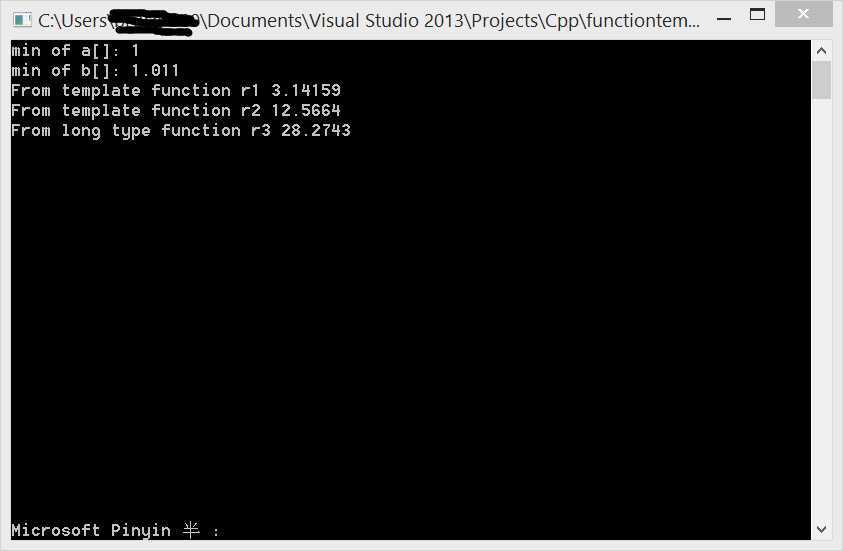#include<iostream>
using namespace std;
const double PI = 3.1415926;
template <class T>
T min(T a[], int n){
int i;
T minv = a[0];
for (i = 1; i < n; i++){
if (a[i] < minv)
minv = a[i];
}
return minv;
}
template<class T1>
double Circle_Square(T1 x){
cout << "From template function";
return x*x*PI;
}
double Circle_Square(long x){
cout << "From long type function";
return x*x*PI;
}
int main(){
int a[] = { 2, 4, 1, 5, 6, 87, 5, 5, 6 };
double b[] = { 2.33, 4.01, 3.0, 1.011 };
cout << "min of a[]: " << min(a, 9) << endl;
cout << "min of b[]: " << min(b, 4) << endl;
int r1 = 1;
double r2 = 2.0;
long r3 = 3; //use the Overloaded functions if has, then refer to the template functions
cout << " r1 " << Circle_Square(r1) << endl;
cout << " r2 " << Circle_Square(r2) << endl;
cout << " r3 " << Circle_Square(r3) << endl;
int i;
cin >> i;
return 0;
}
Results:

Template function 函数模板用法,布布扣,bubuko.com
原文地址:http://www.cnblogs.com/bruceyo/p/3850126.html